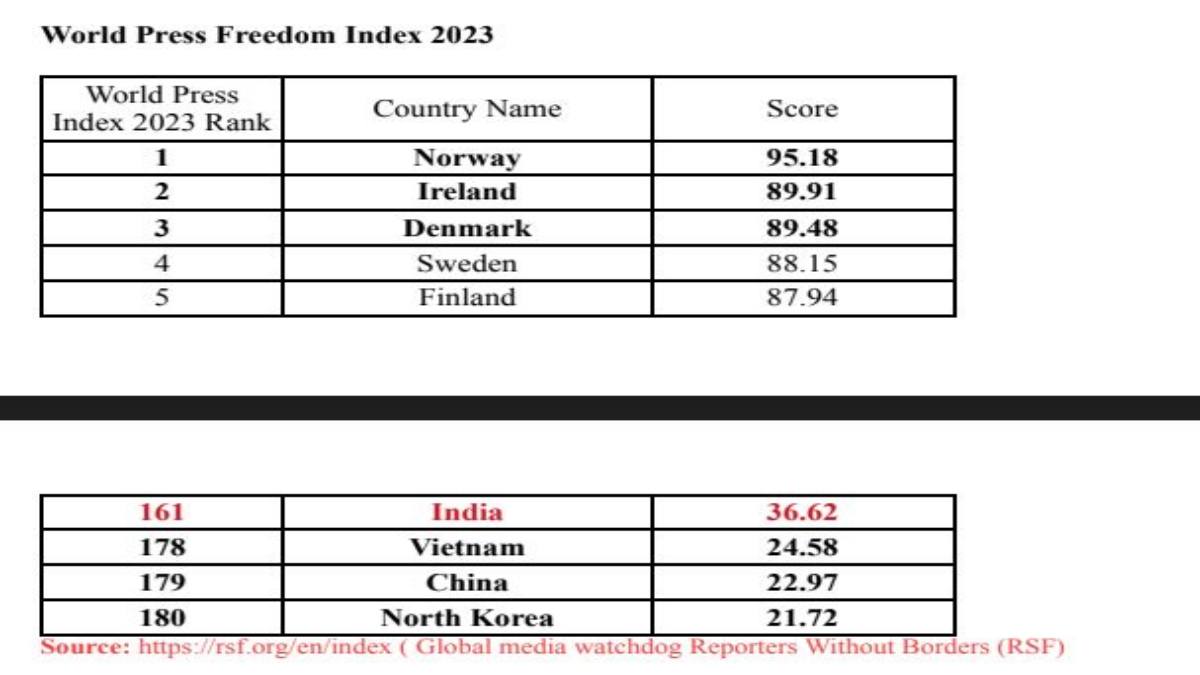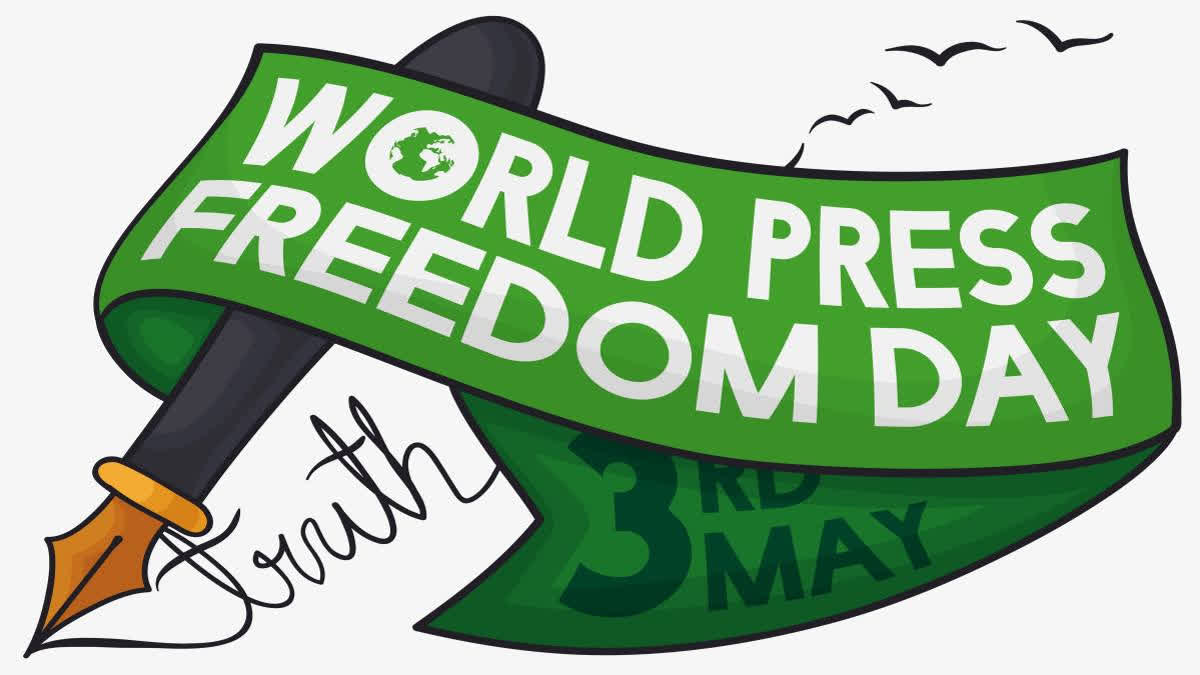Hyderabad: World Press Freedom Day, celebrated annually on May 3, is a beacon for championing press freedom and freedom of expression worldwide. Established in 1993 by the United Nations General Assembly, this day commemorates the Windhoek Declaration of 1991, a pivotal moment where African journalists advocated for press freedom principles.
Theme 2024: The theme for this year’s World Press Freedom Day is "A Press for the Planet: Journalism in the Face of the Environmental Crisis," with a focus on the crucial role of journalism in addressing environmental challenges.
Historical Background: World Press Freedom Day traces its roots to the historic Windhoek Declaration, which laid the groundwork for press freedom advocacy globally. Since its inception, May 3 has been a day to reflect on the importance of a free press and to honour journalists who have sacrificed their lives in pursuit of truth and accountability.
Significance of World Press Freedom Day: World Press Freedom Day serves as a reminder of the fundamental right to freedom of expression and the critical role of journalists in upholding democracy. It provides an opportunity to raise awareness about press freedom issues and to advocate for the protection of journalists in the face of increasing threats and challenges.
Press Freedom Challenges in India: India, with its energetic media landscape, has seen a rise in press freedom challenges in recent years. Incidents of intimidation, harassment, and violence against journalists have escalated, posing significant threats to freedom of the press. Despite constitutional guarantees of press freedom, journalists often face censorship, political pressure, and legal repercussions for their reporting.
World Press Freedom Index: The World Press Freedom Index, published annually by Reporters Without Borders (RSF), provides insight into the state of press freedom worldwide. India's declining ranking in recent years underscores the challenges facing journalists in the country, including censorship, attacks on press freedom, and government interference in media affairs.

Press Freedom Landscape in Asia: Asia remains a dangerous region for journalists, with press freedom under threat in many countries. Journalists across Asia face censorship, harassment, and violence for their reporting, with governments cracking down on dissent and independent media. Despite these challenges, journalists continue to bravely report on critical issues, often at great personal risk.
Profiles of influential Indian journalists:
P. Sainath: Palagummi Sainath is a renowned Indian journalist and writer known for his extensive coverage of rural affairs and socioeconomic issues. As the founder of PARI (People's Archives of Rural India), Sainath has dedicated his career to amplifying the voices of marginalised communities.
Prannoy Roy: Prannoy Roy is a prominent Indian journalist and the founder of NDTV India. With a background in economics and chartered accounting, Roy is known for his honest and principled journalism. Despite facing allegations of corruption and legal challenges, Roy has remained committed to upholding journalistic integrity and reporting on issues of public interest.
Gauri Lankesh: Gauri Lankesh was a fearless Indian journalist and activist known for her outspoken views on social and political issues. As the editor of "Lankesh Patrike," she fearlessly challenged the status quo and advocated for social justice. Tragically, Lankesh was assassinated in 2017.
Danish Siddiqui: Danish Siddiqui was an award-winning Indian photojournalist known for his compelling visual storytelling. Working with Reuters, Siddiqui covered some of the world's most dangerous conflicts, including clashes between Afghan troops and the Taliban. His courageous reporting earned him international recognition, but tragically, he was killed in the line of duty while covering a conflict in Afghanistan.
Sucheta Dalal: Sucheta Dalal is a respected Indian business journalist and author known for her investigative reporting. With over two decades of experience in journalism, Dalal has exposed financial scandals and corporate malpractices, earning her a reputation for fearless and uncompromising journalism. She was awarded the Padma Shri, one of India's highest civilian honours, for her contributions to journalism.
Rajdeep Sardesai: Rajdeep Sardesai is a veteran Indian journalist and television anchor known for his incisive analysis and insightful reporting. With a career spanning several decades, Sardesai has covered some of the most significant events in Indian politics and society. As the consulting editor of 'India Today' and the anchor of prime-time news shows, he continues to be a prominent voice in Indian journalism.
Barkha Dutt: Barkha Dutt is a prominent Indian television journalist and author known for her fearless reporting and outspoken views. With stints at NDTV and Tiranga TV, Dutt has covered a wide range of issues, from conflict zones to social injustices. She currently runs her own digital news channel, 'MoJo Story,' where she continues to push the boundaries of investigative journalism.
Ravish Kumar: Ravish Kumar is a respected Indian journalist and television anchor known for his insightful analysis and hard-hitting reporting. As the Senior Executive Editor at NDTV India, Kumar has earned accolades for his fearless journalism and unwavering commitment to truth-telling. His prime-time shows have become a platform for nuanced discussions on Indian politics and society.



